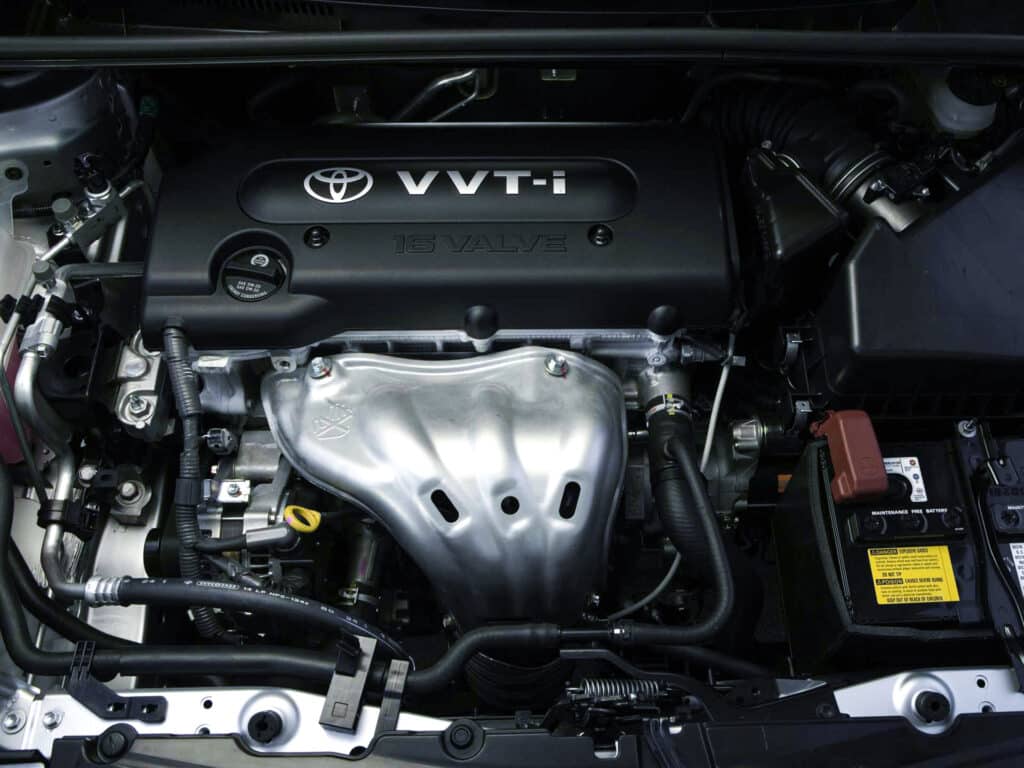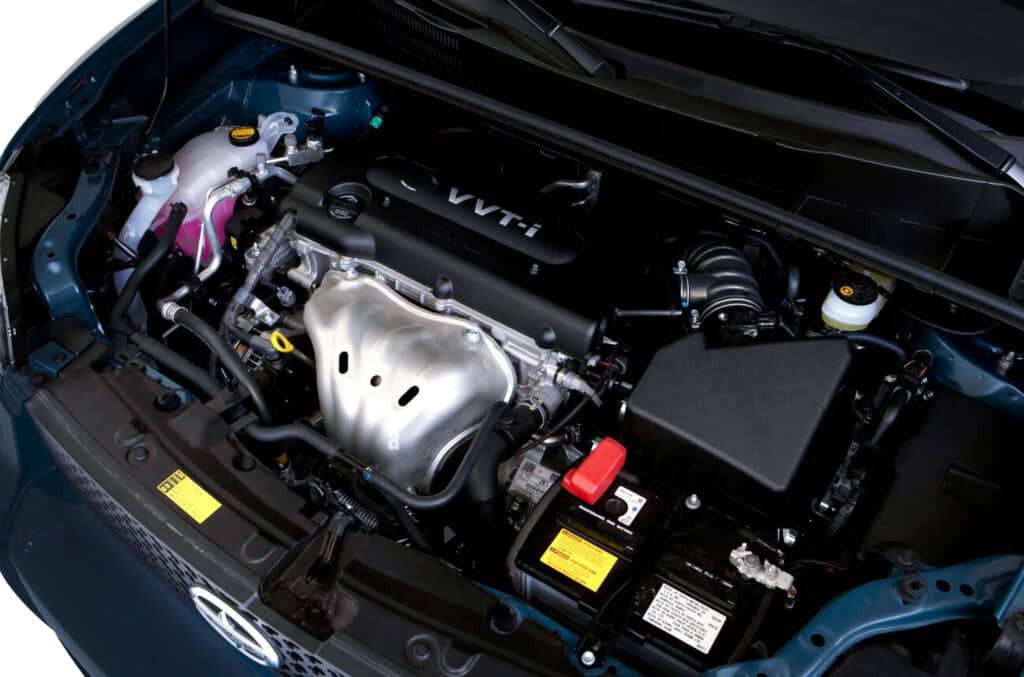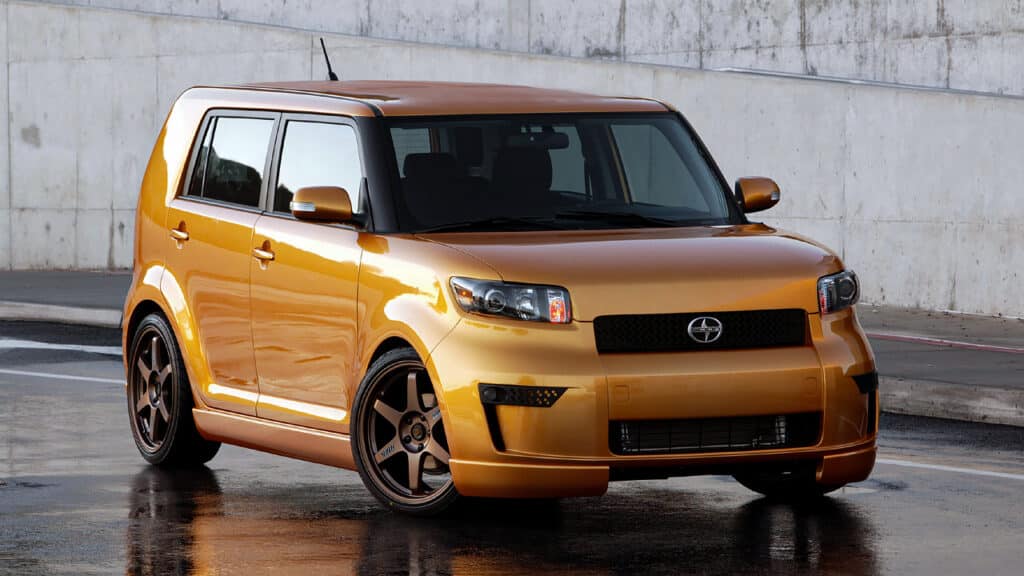If you’re new to the Scion world, the xB is a boxy and period-correct Japanese runabout that may or may not look like it’s been stung by bees at the front end.
The xB is not fast by today’s standards, but it’s not the slowest car in the world either. It’s a fun, approachable, and reliable commuter with excellent fuel efficiency.
In this article, we take a closer look at the Scion xB, specifically its engine specs and longevity. We’ll also go over any recall information that you should be aware of and common problems to look out for.
Scion xB Engine Specs

Depending on the generation, the Scion xB had two different powertrains in the U.S. The 1st-generation received a 1.5L 4-cylinder internally called the 1NZ-FE, whereas a more powerful 2.4L engine powered the 2nd-generation xB.
The latter dubbed the 2AZ-FE, puts out 158 hp and 162 lb-ft, which is a significant jump from the 108 hp and 105 lb-ft from the 1.5L powering the 1st-gen xB.
In terms of specs, the 1NZ-FE runs at 10.5:1 compression with VVT-i on the intake side.
The engine displaces 1,497 cc and features a 6,400 rpm redline. As for the 2AZ-FE, the 4-cylinder engine displaces 2,362 cc and runs 9.8:1 compression.

While the same engine powered the 1st-gen Scion tC, the sports coupe had noticeably better horsepower ratings.
It’s worth pointing out that the xB’s 2AZ 4-pot is a revised Gen 2 version featuring a more aggressive intake cam profile, piston oil squirters, and a 6500 rpm redline.
All xB engines are naturally aspirated and come with manual and automatic transmissions. In some markets, the xB was even offered with all-wheel-drive.
How Reliable Are Scion xBs?
Generally speaking, the Scion xB is a pretty reliable runabout. The sentiment is echoed across multiple forums and reliability portals.

Many owners have reported positive things about the Scion xB. Testimonials of the car lasting over 150,000 miles are not uncommon either.
With an average reliability score of 4 out of 5, it’s fair to say the Scion xB proves itself as a relatively dependable and fun daily driver.
That said, it’s not all good news. There are a few issues surrounding some Scion xBs, the most notable being oil consumption.
The 2.4L 2AZ engines used in 2nd-gen Scion xBs were part of a lawsuit regarding oil consumption.
Although there hasn’t been an engine recall, Toyota did issue a TSB. Eligible owners were offered a free oil compression test to determine if the engine was affected.
Sadly, this wasn’t the only manufacturer-related issue plaguing the boxy runabout. So let’s segue into some of the recalls that Toyota issued for the xB through the Scion brand.
Scion xB Recall Info
There are about 15 recalls against the Scion xB. Most of them are repetitive and largely affect the 2nd-gen xBs. However, some recalls are model-year specific. The most common item on the list is the airbag.

But, there are recalls for some of the dealer-installed accessories as well. You can check your VIN on the National Highway Traffic Safety Administration website for more model-specific details.
As part of the infamous Takata recall, the NHTSA reckons that the xB’s frontal airbags may rupture during deployment.
The airbag inflators use a propellant that can degrade after prolonged exposure to high temperatures and humidity. This causes the inflator to rupture, resulting in serious injuries.
Other potentially serious concerns under the xB’s belt are failing brake hoses and melting window switches. Both of these have been addressed via recalls.
The former involves cars with TRD brake kits, while the latter is about a short circuit causing the window switches to overheat and eventually melt.
Scion xB Motor: Common Problems

Aside from the oil consumption issue, the rest of the problems are fairly minor and less common. These include malfunctioning door locks, fueling issues, air conditioning failures, and a defective VVT-i controller.
Overall, the xB is a solid car. Yes, the melting interior switches are a cause for concern, and the airbag issues can potentially lead to injuries.
However, Toyota has taken the necessary steps by issuing recalls and offering free replacements.
Understand that most of the recalls are not exclusive to the xB alone and have affected various other Toyota models as well.
Plus, Toyota and Scion have moved quite a few of these cars worldwide, so it is possible that some of them turned out problematic.
Conclusion: Owning an xB
Despite the problems, the boxy little Scion is still a reliable commuter that can be a very rewarding project car.
If you’re planning to buy a used Scion xB, keep these issues in mind and have your mechanic take a look at the car before you buy it. Also, check for recalls and make sure they’re fixed under warranty.
What are your thoughts on the Scion xB engine? Let us know by leaving a comment below. If you found this article useful, consider sharing it with your friends! We appreciate your support.

